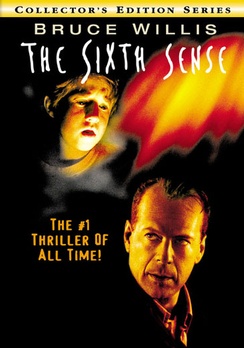Where M. Night went wrong: Study shows spoilers aren't bad
Posted Thursday, August 18, 2011 at 4:30 PM Central
Last updated Friday, August 19, 2011 at 8:35 AM Central
by John Couture

I guess this has been floating around the 'Net for the last week, but it has somehow just now come to my attention. Over at Wired.com, they highlighted an upcoming paper from Psychological Science in which the main conclusion drawn is that being spoiled isn't necessarily a bad thing.
The study took three different story types (Ironic Twist, Mystery and Literary Stories) and measured the readers' enjoyment after reading them. Half of the participants had the ending spoiled for them before they started reading, while the other half read the stories from start to finish.
The counter-intuitive findings suggest that those who were spoiled before they read the story actually reported enjoying the story more than those who read the material as the author intended. The Wired.com piece extrapolates (perhaps rashly) that the findings could translate over to movies. If so, then perhaps we've finally cracked the reason behind M. Night Shyamalan's fall from cinematic grace.
While the study does show promise in the area of spoilers in literature, more testing would have to be done with movies proper before I'm willing to put too much stock into the results. Reading a book and watching a movie are two different activities that tap into different areas of the brain. More importantly, they trigger different parts of the brain during the experience which could affect the conclusions.
I do think that one aspect from movies that isn't as easy to recreate in a controlled literary realm is the social aspect. And that social aspect could end up both supporting and undermining this study's results. I'll share this anecdotal account to illustrate what I'm talking about.
Recently, my wife Julie and I sat down and watched The Usual Suspects. I've seen it countless times, but this was Julie's first time seeing it and she had no clue about the twist. In support of the study's findings, I gleaned more enjoyment (and caught some new stuff) from this viewing because I was anticipating Julie's enjoyment of experiencing the movie.
On the flip side, Julie seemed to relish the movie because she didn't know the ending. She expressed her enjoyment at the ending before the real Keyser Soze is revealed and once the final ending was revealed her enjoyment increased. According to this study, this shouldn't have happened.
Either way, the results are fascinating because the term "Spoiler Alert" has literally become a part of our lexicon. As a film blogger, I have to make sure that I preserve the sanctity of the movie, even ones that are decades old.
Of course, maybe we are going about this all wrong and there will be a new cut of Citizen Kane in which Rosebud is revealed as the sled at the start of the movie. Oops, spoiler alert.





